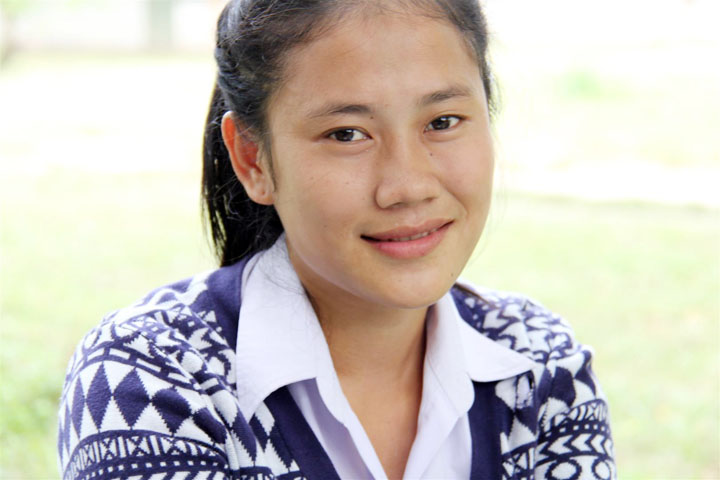Education is vitally important for lifting people out of poverty, and this is especially the case for young women. The Australian government, through the Laos Australia Institute, provides scholarships to over 280 young men and women from disadvantaged rural areas in Laos to attend university. Half of these scholarships, known as LANS, are reserved for young women. Young women such as Thatsanee Huksaphone.
Thatsanee received a LANS award in 2012 and is now in her third year of study towards a Bachelor of Chemistry Education at the National University of Laos. “Without LANS, I would not have come this far,” Thatsanee says.
And Thatsanee has come a long way from her village in Houn District in Oudomxay Province. Throughout her primary and secondary education, she struggled to attend school because her family needed her labour to earn income. At the age of eight, Thatsanee helped her mother sell food in neighbouring villages, walking all the way on foot, while at other times she worked on a maize farm. “When we finished our rice, I had to work. I had to. I can do anything to make sure we have food for my family”.
Amongst the seven children in her family, three had to drop out from school. But Thatsanee was determined. “My parents never told me to stop school but I could tell that they had no money. Many times, they asked to postpone the school fees”, she recalls. However, as one of the brightest students in her school, her family and teacher strongly encouraged her to finish high school. “Somehow, I thought if I quit, our family would still end up in poverty. Therefore I had to study”. After finishing high school, Thatsanee’s family did something they had never done before. They borrowed money from relatives to send one of their children to sit the entrance examination at the National University in Vientiane.
Thatsanee’s story represents the impact that educating girls and young women can have for poor communities. She believes that her degree can make a huge difference in improving the family’s situation and also help her village. “After I graduate, I will go back home and teach at my school because we do not have enough chemistry teachers. I want to make my teachers and my family proud of me.” But her story does not end there. Because of her scholarship, her family is now able to keep her younger brother at high school. Thatsanee is living proof that if you educate a girl, you educate a nation.

